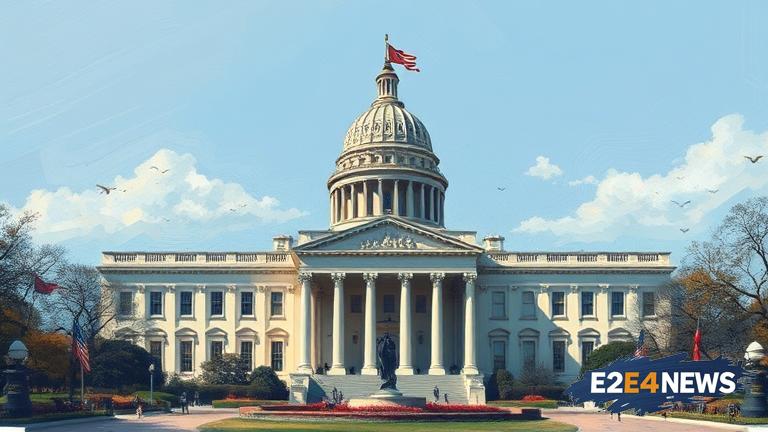The Smithsonian Institution, a revered cultural and intellectual hub in the United States, has come under fire from former President Donald Trump. In a recent statement, Trump launched a scathing attack on the institution, labeling it as ‘elitist’ and ‘out of touch’ with American values. This assault on the Smithsonian is not an isolated incident, but rather part of a larger pattern of intellectual violence perpetrated by Trump and his allies. The Smithsonian, which comprises 19 museums, galleries, and the National Zoo, is a symbol of American excellence and a testament to the country’s rich cultural heritage. By attacking the institution, Trump is, in effect, undermining the very foundations of American democracy and the pursuit of knowledge. The Smithsonian’s mission is to promote education, research, and cultural exchange, values that are antithetical to Trump’s populist and nationalist agenda. Trump’s attack on the Smithsonian is also a reflection of his broader disdain for intellectualism and expertise. Throughout his presidency, Trump has consistently demonstrated a disregard for facts, science, and evidence-based policy, instead relying on intuition and ideology to guide his decision-making. This approach has had far-reaching consequences, from the erosion of trust in institutions to the degradation of the environment. The Smithsonian, as a bastion of intellectual curiosity and critical thinking, poses a threat to Trump’s worldview and his attempts to shape public discourse. By targeting the institution, Trump is seeking to delegitimize the pursuit of knowledge and undermine the authority of experts. The implications of this assault are far-reaching and have significant consequences for the future of American society. If successful, Trump’s attack on the Smithsonian could lead to a decline in funding for the institution, compromising its ability to carry out its mission and provide educational resources to the public. Furthermore, the attack on the Smithsonian is part of a larger trend of intellectual violence, where knowledge and expertise are increasingly being politicized and devalued. This trend has been exacerbated by the rise of social media, which has created an environment in which misinformation and disinformation can spread quickly and easily. The consequences of this trend are already being felt, from the erosion of trust in institutions to the polarization of public discourse. In order to combat this trend, it is essential that intellectuals, educators, and cultural institutions like the Smithsonian continue to promote critical thinking, media literacy, and evidence-based reasoning. By doing so, they can help to create a more informed and engaged citizenry, capable of navigating the complexities of the modern world. The Smithsonian, as a trusted and respected institution, has a critical role to play in this effort. Its commitment to education, research, and cultural exchange makes it an indispensable resource for promoting intellectual curiosity and critical thinking. As such, it is essential that the institution is protected and preserved for future generations. The attack on the Smithsonian is not just an attack on the institution itself, but on the values of intellectual curiosity, critical thinking, and evidence-based reasoning that it represents. It is a reminder that the pursuit of knowledge and the promotion of education are essential to the health and vitality of American democracy. In conclusion, Trump’s assault on the Smithsonian Institution is a disturbing trend that has significant implications for the future of American society. It is essential that intellectuals, educators, and cultural institutions continue to promote critical thinking, media literacy, and evidence-based reasoning in order to combat the rise of intellectual violence and the devaluation of knowledge.
